HW-2 and Morphology Bonus Options
Going from Week Four to Week Five…
The Workflow Schedule has been updated; adjust your calendars and expectations accordingly!
(a) Group Work.
Given shifting needs and shifting personalities, you can freely form and remix and reform groups as you see fit. There is no “the group” anymore. There is only “this group for this assignment” and those groups will change size depending on the work. It’s okay. If there’s any time you strongly feel like it would be best for you to work in a “group of one”, email me, explain why you want to work alone, and I’ll consider it. The next major group work assignment is Blog-2, due October 2nd, 7pm. For Blog-2 you must work in groups of 3-5.
(b) You have two options for “bonus points” this weekend:
Hanunoo. As a way to boost your homework grade by 2 points, you may complete the Hanunoo problem from the ditto I passed out in class today. Due on Tuesday at the beginning of class. Must be neat. Must be clean. Must clearly show your work, along with annotations/descriptions of your thought processes, failed attempts, and successes. Show Your Work (like in math class). You may work in groups of two. You may all feel free to use the Collaborate page on the course website to discuss and collaborate.
Morphology of Images. For a few free-floating bonus points (up to 4), you may compose a Morphology Of Images blog post. Pick three images (pick from the sites listed below) and describe their morphology. Talk about their parts. Find what patterns repeat across the three images youv’e chosen. Determine what constitutes a “root” and what constitutes an “affix” in these images. What’s the difference between inflectional and derivational in these images? Are there any parts that seem to be allomorphs? See my blog post for an example of how to respond. Make sure your post is well formated, well titled, and well tagged. You may work in small teams of two or three, but make sure to clearly indicate how each member contributed equally. Remeber, this is a thought experiment– there is no one right answer. Open your mind! Due Monday, September 22nd, by 7pm.
Choose your images from one of these sources:
Omni Magazine Reboot (on Tumblr)
Everyday Comics (on Tumblr)
Todd Webb’s Wall Drawings (on Tumblr)
The art of Roy Lichtenstein (from Google image search)
As always– have fun, linguists!
The Morphology of Images
Take a look at the image “Minor Changes 50” by Todd Webb (all images by Todd Webb, take from Comics Workbook and Wall Drawing).
- What parts of the image do you see?
- How do those parts interact with each other?
- Is this image telling a story?
- Which parts of this image are characters in the story?
- Which parts of this image are crucial for the setting of the story ?
- Which parts of this images are crucial for the plot?
- How do these parts interact?
Now, look at Minor Changes 46.
- Does this new information change your interpretation of the morphology of Minor Changes 50?
- What do you know now that you didn’t know before?
- What parts of this image are “root” or “stem” parts and which parts feel like “affixes”? Why?
- Of the affixes, can you say which are “inflectional” (they only exist to hold the grammar together) and which parts are “derivational” (they add some important information to the meaning, or change the kind of meaning of a given part)?
Now look at” Minor Changes 63″–
- Did your opinion about the morphology of this image change?
Now look at the entire series of images in this group of “Minor Changes” (Minor Changes 39-63) and think about morphology.
- How does the visual morphology change?
- How does it stay the same?
One possible set of answers…
-doug
A Call To My Mother…
My phone call to a significant other was to my mom. It was interesting to notice little things i had never caught onto before. She has an accent since English was her second language. We spoke a lot about school and work and i realized those are our usual topics. I also realized she never used to get emotional, and with this call she was telling me that she missed me being home with her a lot. As we continued talking, i also realized that she bounced around speaking English and Spanish in the same sentences a lot. I also very oddly brought up the topic buckets and pails and i realized she does not say either. Instead she says the Spanish translation of it. When i called her she began with “how are you? como estas mija?”. She doesn’t use hella at all and says soda with an accent. All of the slang she used when she was younger was in Spanish. That turned into very cute and funny conversation. I then asked her to pronounce the listed words and she kept telling me that they were all the same words. I assumed this was because English was her second language. overall, i had a very good and interesting talk with my mom.
Call a Significant Person
I decided to call my grandfather because he lived in Boston for most of his life and he tends to say a lot of different words and phrases that I would never think to say. For example, if he likes something he says “this is bully” or if he is asking you if you are hungry, he will look at you and simply ask “Jeet?” as far as the generics go: soda, how’s it going, and bucket are all things that he will say. My grandfather was disgusted when I brought up slang from my era. He particularly despised ratchet and went on talking about how he didn’t understand why a trashy girl was being called a type of wrench.
GenS_100 Calling a Relative
I called my relatives, and since they are British, their word choice and accent are different from those who were born and lived in America their whole lives.
I noticed they tend to use the word “pail” more than they use “bucket” even though they use both. When they answer the phone, they don’t say “What’s up?” or “What’s good?” Instead they’ll say “You alright?” That’s the way people in England also greet each other even when they aren’t on the phone. Usually they won’t say soda or pop, and they’ll say fizzy pop instead. They never use “hella,” but they did tell me about some interesting slang from England. My cousin told me when people are typing online, they will use “babes” a lot. Saying the words “crap” and “piss” in England is worse than saying them in America. When describing something that belongs to them, instead of using “my,” they will tend to use the word “me.” For example, when we were talking about school, my cousin said “I almost left me bag in the house.”
When my family in England pronounce “pool” and “pull,” and “feel” and “fill,” the words sound really different. When they say “bad” and “bat,” the words sound similar, but “bot” sounds different. “Caller” and “collar” sound pretty similar.
Through my visits to England and conversations on the phone with my relatives, I’ve noticed the word choice between Americans and the English can differ a lot.
-Meg Collier
Gen 100 Calling a Significant Figure
For this assignment I called my cousin who was born and raised in Los Angeles. I decided to call my cousin instead of my parents because my parents can not speak English so calling him would fit the assignment more. I don’t see my cousin very often because he’s very busy the only times I get to see him are at family gatherings. While talking to him on the phone I didn’t pick up on anything new or surprising about the way he speaks. We had a very casual conversation, we talked about college and dorm life and he gave me a lot of advice since he has already been through college and is now getting his masters at USC. He started of the conversation with a “What’s up?” and “What’ve you been up to?” in which I replied “nothing much”. Since he grew up in southern California he rarely uses the word “hella,” even during our conversation. During our conversation, I asked him a serious of questions and found out that he says soda and bucket instead of pop and pail which is not very surprising in California. Being a 23 year old male college student he knows quite a lot of slang such as “swag”, “sick”, “dope” but he rarely uses slangs that I use such as “totes”, “adorbs” and “ratchet.” However, like me he has never heard of the words dank and flame which I think sounds kind of funny and weird. The vowels in pool and pull, feel and fill sound totally different to me. I also pronounce words such as bad,bat and bot differently. However, the words collar and caller sound the same to me and I say them similarly too.
My Mom’s Linguistic Habits
She says bucket, never really uses the word pail.
How are you? How have you been? How’re you doing?
Pop
She will say hella occasionally. Mostly as a joke or to make me or her other kids groan.
a) [Pool/Pull] Different, subtly. b) [Feel/Fill] Different, distinct. c) [Bat/Bad/Bot] Bat and bad are similar, bot is clearly different. d) [Collar/Caller] Same, indistinguishable
Slang she used as a kid: bitchin’, cute, cool, rad/radical, stoners, chopped/choppers
Gen_S100C Call Home HW
Andrew Gasparini
Call to Mom
I made a phone call to my mom, who is from San Ramon, CA.
A) I asked her about what we use when we wash the cars, and she used the term bucket.
B) She uses the phrase How’s it going? a lot.
C) I asked her what I always drink, and she said soda pop. I think she was joking around when she said this.
D) She did not use hella in our conversation, but I know she uses it occasionally.
E) She didn’t have any idea what the term, dank, meant. Or at least she pretended she didn’t know its primary use.
She mentioned that when my dad is around his cousins, he uses his slang from their childhood, because they were all really close. So when he’s with them he always says everything is killer or wicked or sick! I also notice him use the phrase, “Right on!” constantly.
When asked about the different vowels and how they compare, she said that they all sounded very close, but we had our own distinctions between them.



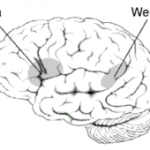
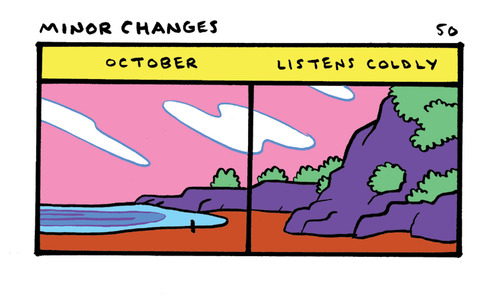
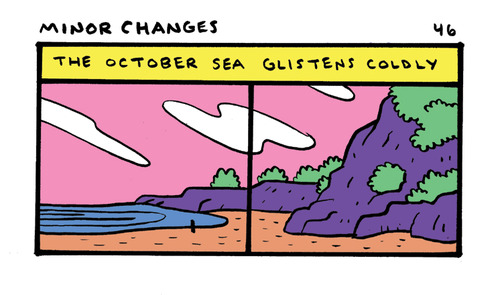
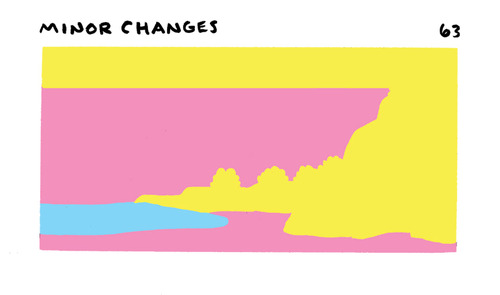
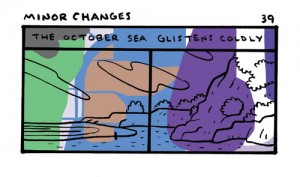
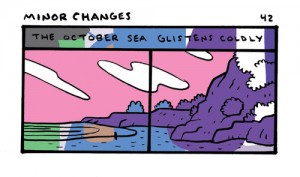
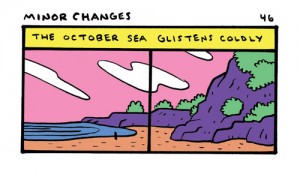
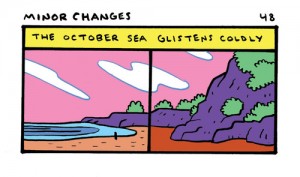
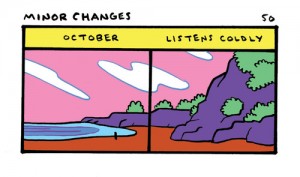
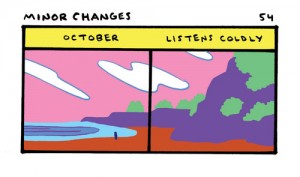
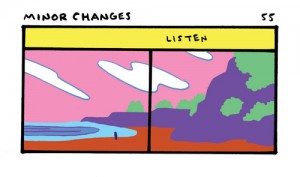
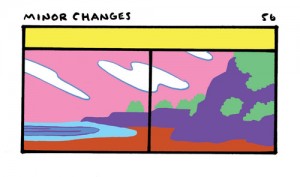
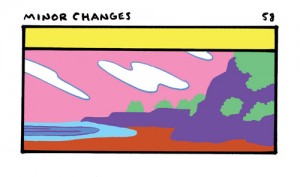
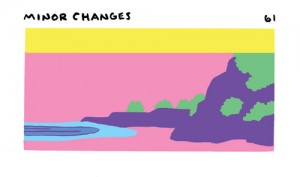
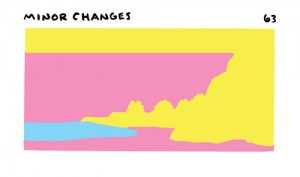
 D5 Creation
D5 Creation